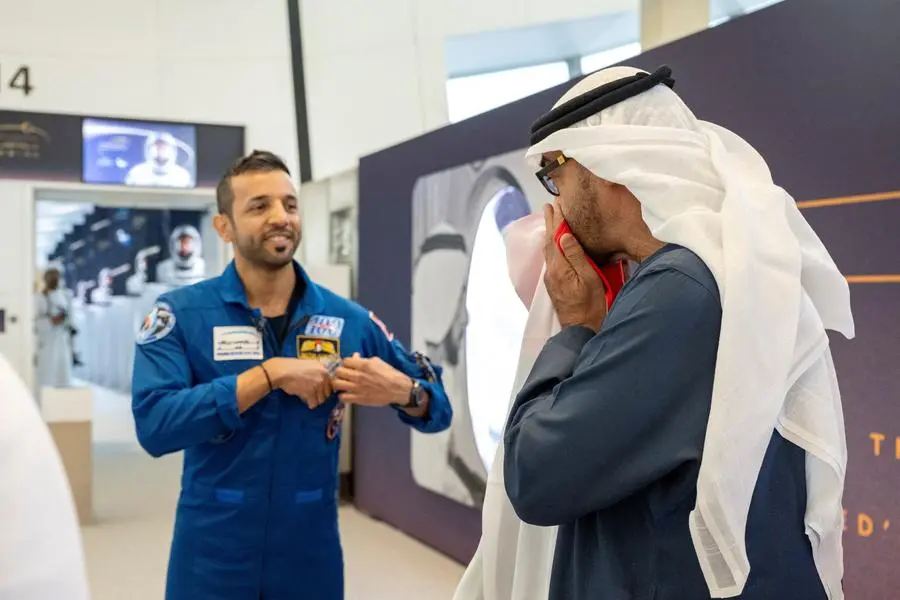PHOTO
The second batch of astronauts, Nora AlMatrooshi and Mohammad AlMulla are ready and currently undergoing training for their missions
Four years ago today, the UAE blasted off on a historic space mission, a journey that would realise the dream of thousands. On September 25, 2019, astronaut Hazzaa AlMansoori embarked on the UAE's first scientific mission to the International Space Station (ISS).
Today, the UAE is a leader in space exploration in the region, with Emirati astronaut Sultan AlNeyadi recently concluding the Arab world's longest space mission. He also became the first Arab to perform a spacewalk.
Posting on its social media channels, the Mohammed bin Rashid Space Centre commemorated the day, vowing that "the journey will never halt".
AlMansoori and AlNeyadi were the first to be chosen from a pool of over 4,000 aspiring astronauts in 2018. In preparation for the mission to the ISS, AlMansoori and AlNeyadi underwent training specifically designed to suit the requirements and duration of the mission. The exercises were conducted in various countries as part of partnership agreements that MBRSC signed with major space agencies, including Roscosmos, NASA, ESA, and JAXA.
AlMansoori became the first Emirati in space when, in 2019, he embarked on the UAE's first scientific mission to the ISS. With that, UAE became the 19th country worldwide and the first country in the Arab region to travel to the ISS.
The second batch of astronauts is ready and were selected from 4,305 applicants. Nora AlMatrooshi and Mohammad AlMulla are currently undergoing training for their space missions.
The UAE astronaut programme, launched in 2017, is carried out under the slogan 'Zayed's Ambition', to pay homage to the founding father of UAE, Sheikh Zayed bin Sultan Al Nahyan, who envisioned the country to be at the forefront of scientific achievements.
Inaugurated by His Highness Sheikh Mohammed bin Rashid Al Maktoum, Vice-President and Prime Minister of the UAE and Ruler of Dubai, the programme prepares Emirati astronauts for manned missions to the ISS and other destinations in space. Recently, upon returning to the UAE after completing his mission, Sultan AlNeyadi said that he hoped the country's next mission would be to send someone to the moon.
The first of its kind in the Arab world, the programme provides the necessary training, expertise, and qualification for Emirati cadres to represent the UAE and the Arab world in future space missions and to conduct scientific experiments supporting global space exploration.
In addition to the astronaut programmes, the UAE also have an Emirates Mars Mission and the Emirates Lunar Mission underway. The Hope Probe, launched in 2020, went into orbit around Mars in 2021 and continued to study the Red Planet. The Rashid rover 2, part of the Emirates Lunar Mission, was announced in April and is expected to study the moon's surface.
Copyright © 2022 Khaleej Times. All Rights Reserved. Provided by SyndiGate Media Inc. (Syndigate.info).





















